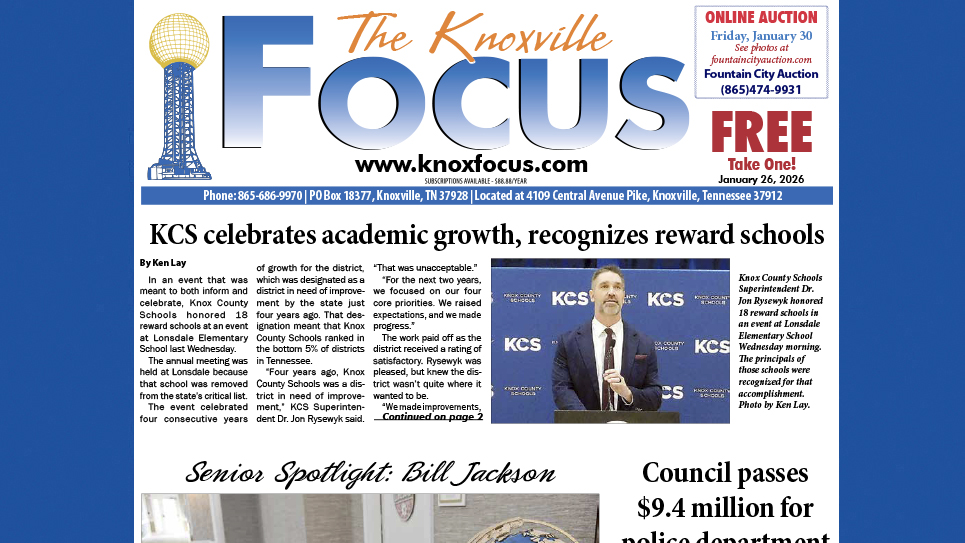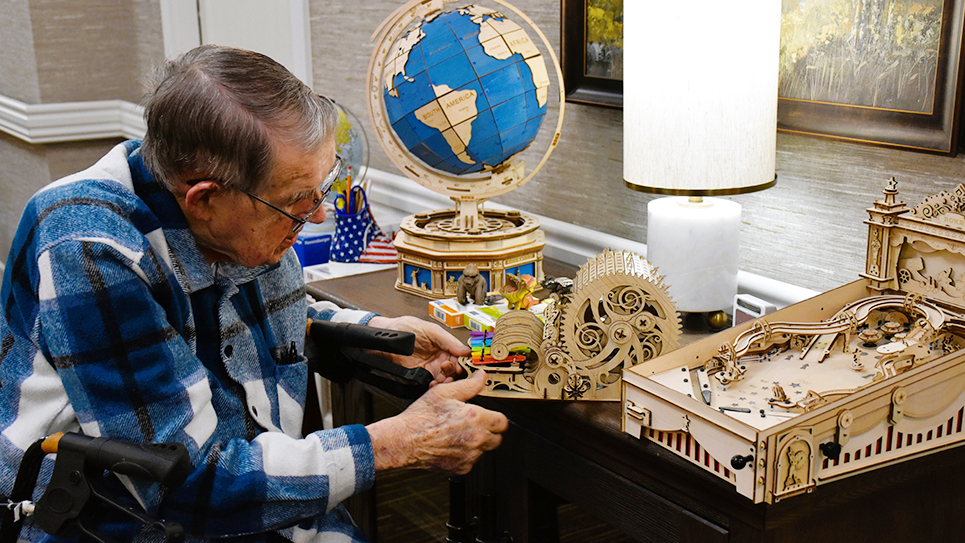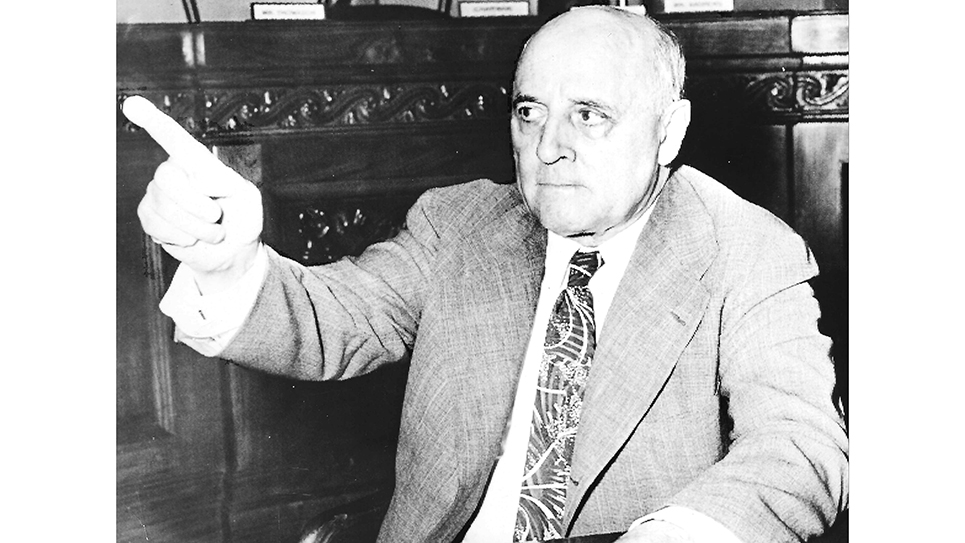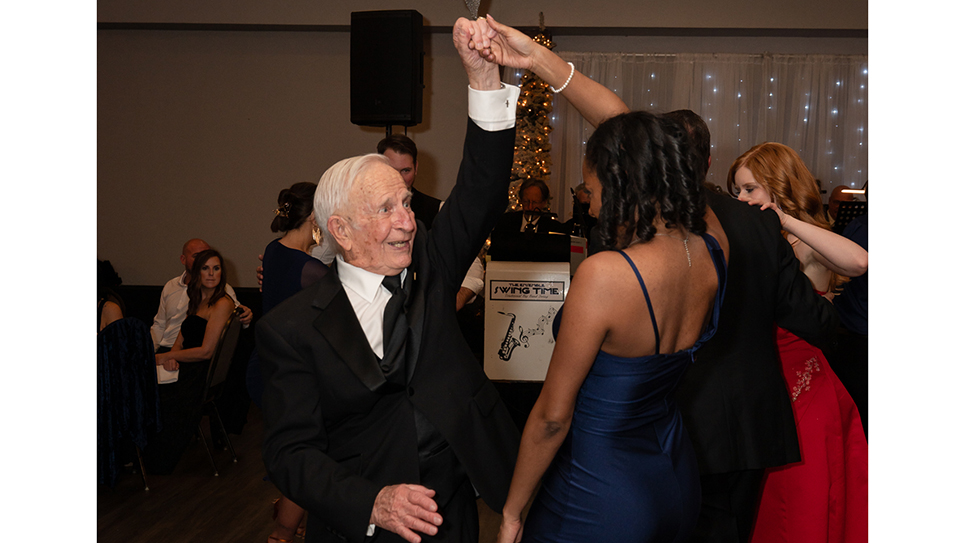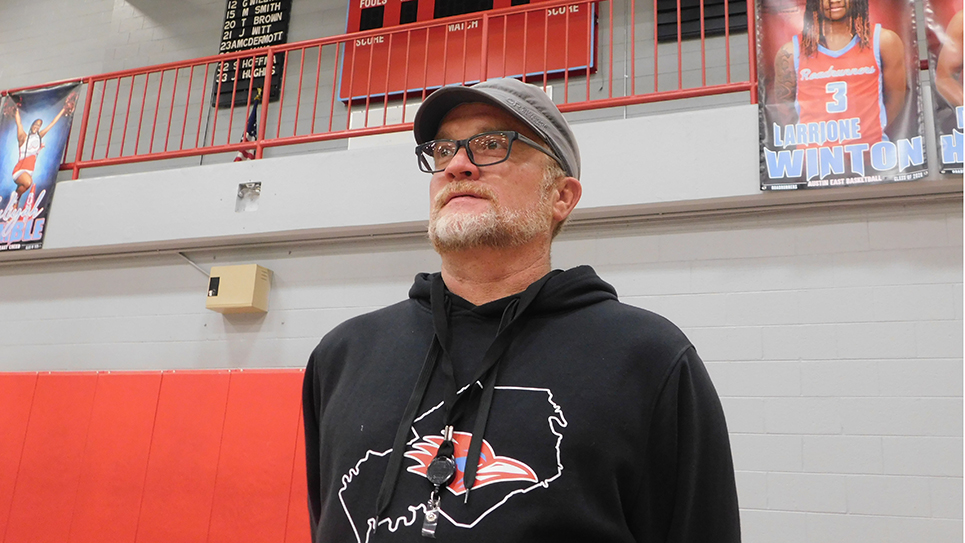Reason Cecil’s Grocery, Part 1
By John J. Duncan Jr.
duncanj@knoxfocus.com
Editor’s Note: This is part one of a two-part series that was originally published in the September 26, 2016, issue of Chronicles: A Magazine of American Culture.
Almost two years ago my wife and I were driving home after having dinner in a Knoxville restaurant with former Tennessee Gov. Don Sundquist and his wife. It was the Monday night before Thanksgiving, and l decided to call my then 90-year-old Uncle Joe, a retired judge, to see if he and my aunt wanted to have turkey and all the trimming s with us that coming Thursday.
My uncle and I often trade stories in these occasional conversations, and that night he told me about walking with my father to Reason Cecil’s Grocery in Helenwood to pick up some things for my grandmother.
My father and my uncle were 2 of 12 children (the first two, twins, died at birth) of Flem and Cassie Duncan. They grew up in what would be considered bitter poverty today. My grandfather was a subsistence farmer, carpenter, and Presbyterian lay preacher. My grandmother taught school in years when teachers made $60 or $75 a month.
Their home was between Huntsville and Helenwood in Scott County, Tennessee, on the Kentucky line below Somerset. Pure Appalachia, this was one of the poorest counties in the United States. My dad used to say that they lived out past the “Resume Speed” sign.
Uncle Joe said their visit to Mr. Cecil’s grocery store took place when he was 9 and my father was 14. After the boys made their purchases, Mr. Cecil came out and sat on the front porch to talk to them.
While they were talking, a train came through, and Mr. Cecil said, “That engineer is going too fast; he’ll never be able to make the curve at New River.” Moments later, they heard a terrible screeching at the river about one mile away. They ran to the scene just in time to see men pull a cover over the engineer who had been killed when the train derailed.
Because of the death and the massive train wreck, my uncle never forgot that day. My reaction, though, was to a different part of the story. I thought about the owner of a country grocery taking time out from his business to sit on the porch to visit with two boys. What a kinder, more humane time that was.
Today millions buy their groceries at Walmart, where they probably don’t even know the name of the manager, or at some other large chain grocery store, where they don’t have a front porch, much less a manager who would have time to sit and visit with two boys.
My father, who preceded me in Congress, used to say (I suppose half-jokingly) that the problems of the country grew worse when they stopped putting front porches on houses. People stopped visiting with each other as much as they had.
He also once told me that the best places to campaign were the small country grocery stores, usually run by a husband and wife. The owners knew everyone in their community and were usually well respected, in part because they often helped people who were going through hard times. Today, most of the rural country grocery stores are gone, as are many other small businesses.
When I was growing up in East Knoxville, the city population was about 185,000 – around what it is today. But outside the city limits there were farms in every direction, with probably only about 50,000 people.
Now, Knox County has almost doubled in population, to about 460,000, as most of the farms have been turned into subdivisions. The population of the state is booming, as people move from the high-tax states to low-tax ones like Tennessee.
In East Knoxville where I grew up, in the 50’s and 60’s, the main business section was called Burlington. All the stores were named after owners who worked there.
There was Henderlight Feed and Seed, Farmer’s Hardware, Cox and Wright Grocery, Pass’s Five and Ten, Greenlee’s Drug Store, Keeton’s Jewelers, McCarty Mortuary, Ruby’s Restaurant, Ward’s electric-appliance shop, a sole-practice doctor, a shoe-repair shop, a neighborhood movie theater, a bank, and Barnes Barber Shop.
I am now 69 and have gone to Barnes since my first haircut. My two sons and one of my grandsons got their first haircuts there, too. I have always said the problems of the country could be solved better in Barnes Barber Shop than in Congress.
Not far from Burlington were other businesses owned and operated by locals, such as Parker Esso (later Exxon), Sherrod Amoco, Troutman’s Grocery, and Sonners Drug Store.
To be continued in next week’s Focus.

